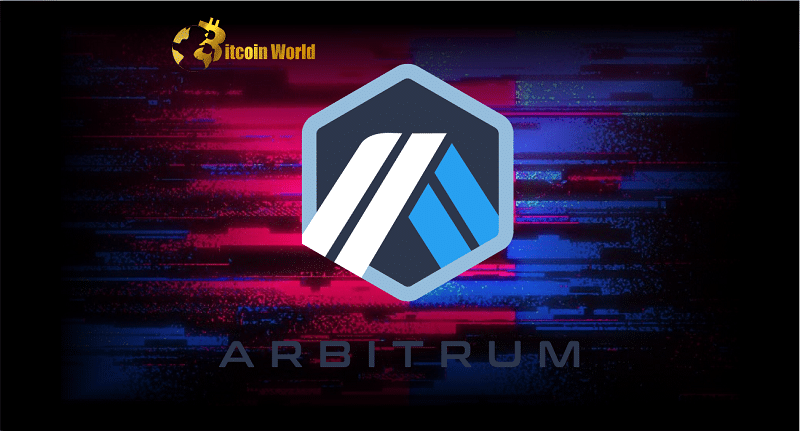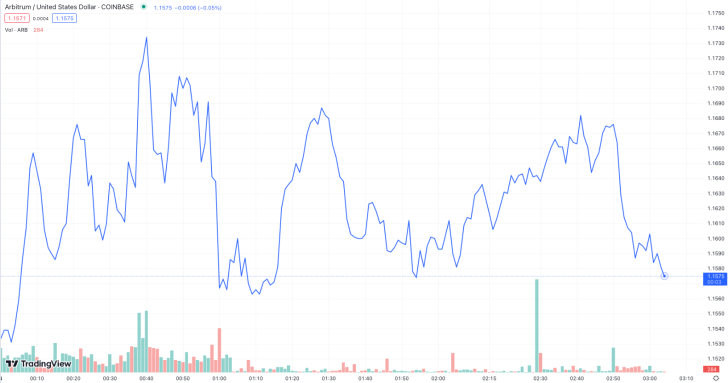Decentralization and governance – in the crypto world, they’re like peanut butter and jelly. Since Bitcoin burst onto the scene, crypto maximalists have championed decentralization as a core tenet. While the Bitcoin whitepaper didn’t explicitly spell out ‘governance,’ it’s been baked into the DNA of decentralized ecosystems throughout the crypto space.
Fast forward fifteen years, and governance is not just a buzzword; it’s a battle cry. But harmony? Not so much. Take Arbitrum, for example – one of the hottest Layer-2 scaling solutions. It recently found itself in the eye of a governance storm, proving that even in crypto paradise, drama can erupt.
Arbitrum’s Governance Stop Sign: What Happened?
Just weeks after its public token launch, Arbitrum’s ARB token became the center of a very public crypto showdown. The chain’s inaugural DAO proposal, AIP-1 (Arbitrum Improvement Proposal Framework), landed like a digital bombshell. Community members cast their votes, and the results were clear: a resounding ‘no’ with 100 million ARB tokens voting against, versus a mere 16 million in favor, and 14 million abstaining.
The crux of the issue? Token allocation. AIP-1 proposed allocating a massive 750 million ARB tokens – about 7.5% of the total supply – to the Arbitrum Foundation. Sounds straightforward, right? Wrong.
Here’s the kicker: even though the community voted down AIP-1, those 750 million tokens had already been moved to the Foundation’s coffers. The Foundation argued that AIP-1 wasn’t a vote at all, but a ‘notice’ or ‘ratification’ – essentially, a heads-up about pre-determined tokenomics. They weren’t asking for permission; they were informing the community. While disclosing tokenomics is standard practice in crypto, the ‘notice’ approach, especially via a DAO proposal format, felt like a governance misstep to many.
As they say, in crypto, only two things are certain: volatility and token allocation disputes. But this Arbitrum situation added a fresh layer of complexity.
Arbitrum (ARB) has seen relative volatility during community debate around an unusual governance vote. | Source: ARB:USD on TradingView.com
Is It All Doom and Gloom for Arbitrum?
Not necessarily. As Bitcoinist reported earlier this week, the ARB token experienced a ~20% dip amidst the governance debate, but quickly rebounded. This resilience suggests underlying market confidence. Furthermore, Total Value Locked (TVL) on Arbitrum has remained robust, hovering above $2.2 billion at the time of writing. This indicates that the DeFi community, a crucial part of Arbitrum’s ecosystem, largely remains unfazed.
Beyond the numbers, the Arbitrum situation highlights a critical lesson: the absolute necessity of clear and open communication between Foundations and their communities. Crypto communities generally understand and accept that Foundations require initial capital to operate and drive development. Unprovoked token allocations, in many cases, have been accepted as a necessary component of project launches.
Ultimately, regardless of where you stand on tokenomics specifics, the Arbitrum AIP-1 saga underscores the paramount importance of transparent communication with community stakeholders. This situation, while generating significant debate and concern, is fundamentally rooted in a communication breakdown. It’s a challenge, yes, but far from ‘irreparable damage’ for the Arbitrum chain. In fact, it’s a valuable learning moment for the entire crypto ecosystem on how to navigate governance with greater clarity and community alignment.
Disclaimer: The information provided is not trading advice, Bitcoinworld.co.in holds no liability for any investments made based on the information provided on this page. We strongly recommend independent research and/or consultation with a qualified professional before making any investment decisions.





